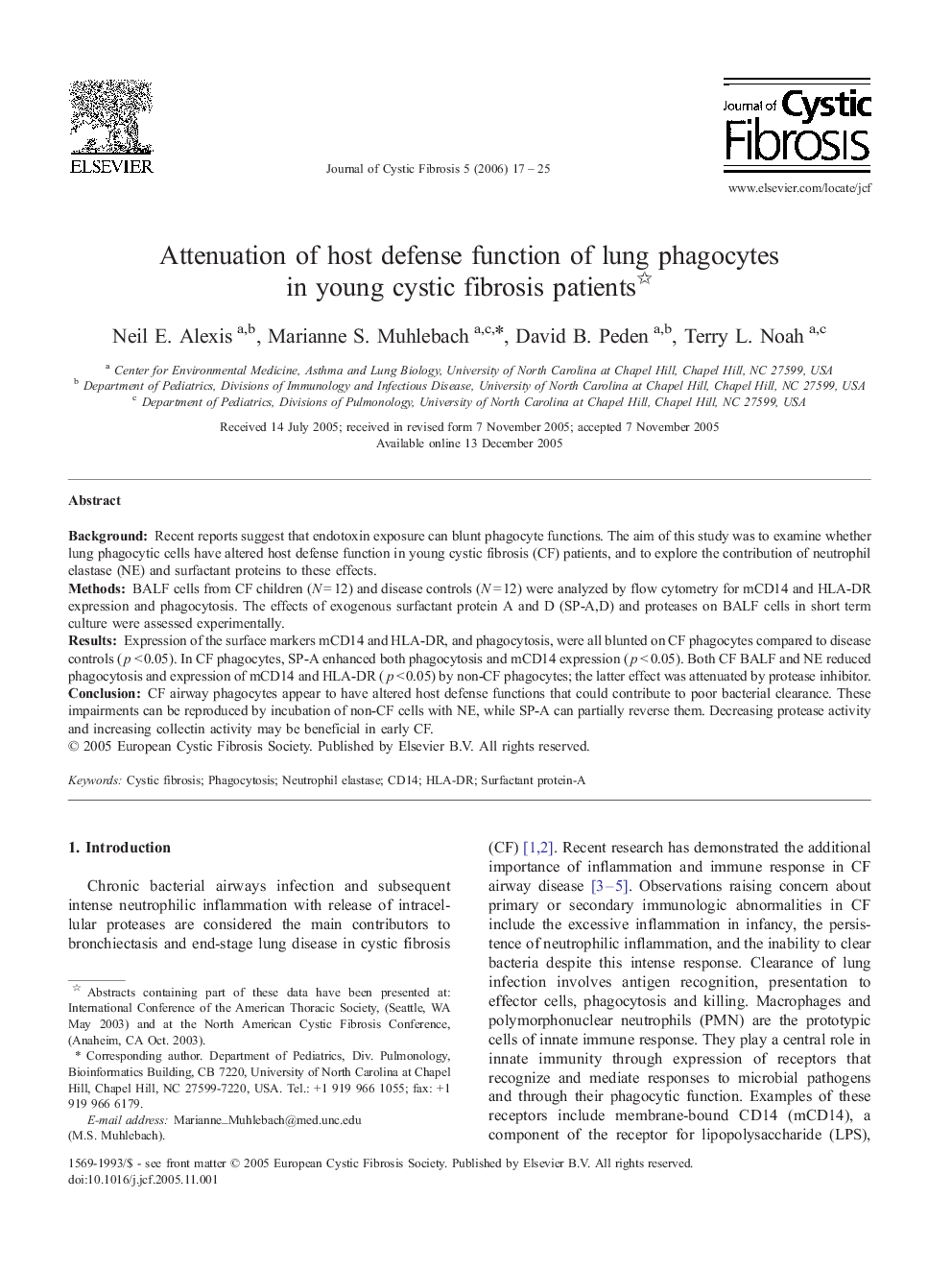| Article ID | Journal | Published Year | Pages | File Type |
|---|---|---|---|---|
| 4209819 | Journal of Cystic Fibrosis | 2006 | 9 Pages |
BackgroundRecent reports suggest that endotoxin exposure can blunt phagocyte functions. The aim of this study was to examine whether lung phagocytic cells have altered host defense function in young cystic fibrosis (CF) patients, and to explore the contribution of neutrophil elastase (NE) and surfactant proteins to these effects.MethodsBALF cells from CF children (N = 12) and disease controls (N = 12) were analyzed by flow cytometry for mCD14 and HLA-DR expression and phagocytosis. The effects of exogenous surfactant protein A and D (SP-A,D) and proteases on BALF cells in short term culture were assessed experimentally.ResultsExpression of the surface markers mCD14 and HLA-DR, and phagocytosis, were all blunted on CF phagocytes compared to disease controls (p < 0.05). In CF phagocytes, SP-A enhanced both phagocytosis and mCD14 expression (p < 0.05). Both CF BALF and NE reduced phagocytosis and expression of mCD14 and HLA-DR (p < 0.05) by non-CF phagocytes; the latter effect was attenuated by protease inhibitor.ConclusionCF airway phagocytes appear to have altered host defense functions that could contribute to poor bacterial clearance. These impairments can be reproduced by incubation of non-CF cells with NE, while SP-A can partially reverse them. Decreasing protease activity and increasing collectin activity may be beneficial in early CF.
